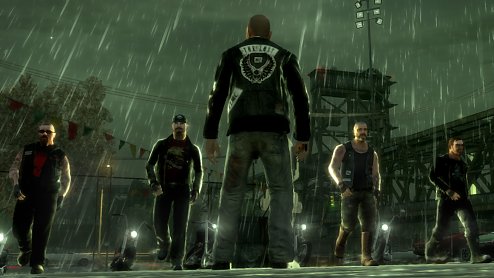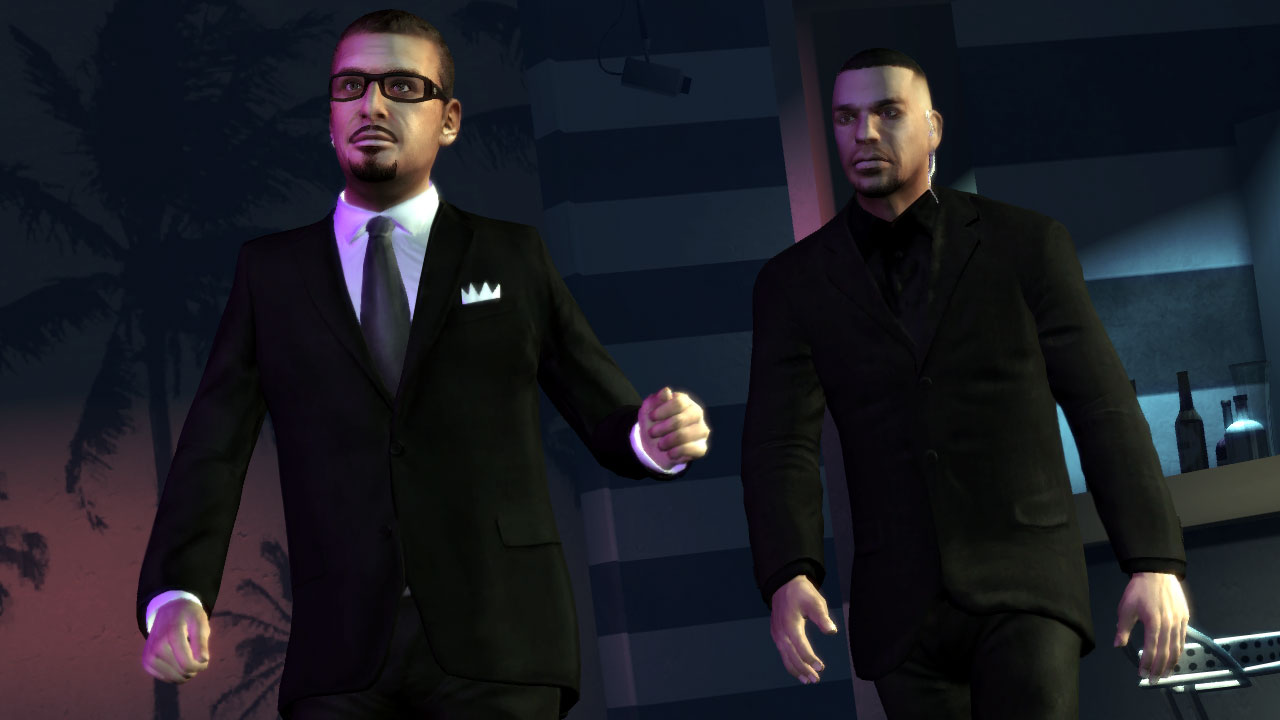This post has not been edited by the GamesBeat staff. Opinions by GamesBeat community writers do not necessarily reflect those of the staff.

[The following contains spoilers for Grand Theft Auto IV and its two DLC packs]
Back in 2008, acclaimed author Junot Diaz (Drown, The Brief Wondrous Life of Oscar Wao) wrote a piece about Grand Theft Auto IV entitled “’Grand,’ but No ‘Godfather.’" In it, he described GTA IV as:
… an example of our evasions as a culture, more of a fairy tale, more of a story of consolation than a shattering cultural critique or even, dare I say it, great art. GTA IV is a game that allows you to forget how screwed-up and complicated things are in the real world; it could have done more, it could have put that screwed-up complicated world front and center.
I’m not sure that I completely disagree with Diaz, but I am curious to know how (or if) his opinion would have changed if he had ventured to play the game’s two DLC add-ons, The Lost and the Damned and The Ballad of Gay Tony.
I recently completed a second playthrough of the full game and the two add-ons, and I have to admit that my first time through GTA IV left a bittersweet taste in my mouth. The narrative concept of this particular entry was grand, but the game was just too damn long and its narrative sagged in places (Manny Escuela, anyone?). However, playing the DLC and the main quest at the same time made the narrative a much more cohesive and interesting experience. What emerged was a shared and rather grim story about chance.
It’s clear to me that, although GTA IV can certainly be played by itself, all three of these campaigns are needed in order to experience the full story. Much like Robert Altman’s Short Cuts, they are all separate stories that happen to occasionally intertwine. Each protagonist has his own narrative and set of issues he’s dealing with: Niko futilely attempts to both escape and confront the demons of his past while tackling the seedy side of the American Dream, Johnny Klebitz tries to keep his biker gang (the Lost) together after their insane former president returns and leads them into a senseless gangwar, while Luis Lopez struggles to help his boss pay back his creditors by doing violent and outrageous favors for them.
The ending of GTA IV’s main story presents Niko with a choice: pursue revenge against someone who has caused him only misery throughout the events of the game, or make a deal to absolve the man of his crimes and rake in tons of cash. Unfortunately, neither choice has positive consequences for Niko. If you choose revenge, Niko’s innocent girlfriend dies, and if you choose to make a deal with the bastard who has consistently screwed you over again and again will only result in — get this — him betraying you once more … and your cousin’s death. In the grand scheme of things, neither choice matters that much. Somebody that Niko loves will die, and all the money he has accumulated means nothing.

This is not poor game design. You are presented with choices throughout GTA IV, but you’re never told that they’ll have that much of an impact. Kill Playbox X or Dwayne. Does it matter who? You might get a little reward for killing one of them, but the endgame doesn’t change one iota. This is because choice does not reign supreme, chance does.
The DLC cements this theme. In The Lost and the Damned, Johnny spends the first half of the game loyally (but not unquestioningly) serving Billy Grey, the club’s president, and he is rewarded with suicide missions, rampant paranoia, and, eventually, Grey’s betrayal when he decides to go state’s witness. In a fantastic sequence, the remaining members of the Lost storm the prison holding Grey and kill everyone inside, but this doesn’t change the fact that the gang is done. The campaign ends with the remaining members of the Lost burning their clubhouse to the ground as they watch solemnly. Roll credits.
And to think that all of this could have been avoided if Johnny had been enough of a scumbag to usurp Billy and put a bullet into his head at the beginning of the game.
Contrast this ending with the one for The Ballad of Gay Tony, where Luis is actually rewarded for his loyalty to Tony. He kills the antagonist and all of Tony’s creditors are either paid back or dead. Not only that, but there’s a hint that Yusuf Amir, the son of a billionaire, will work with Tony and Luis to open a chain of Tony’s clubs around the world. Then there’s an earlier sequence where a homeless man gets accidentally pushed by Luis and discovers the diamonds that all the protagonists of these stories have been chasing.

I won’t disagree with Diaz’s notion that GTA IV isn’t “great art,” but I think a game that leaves everything up to chance like this is hardly a “story of consolation” or a “fairy tale.” Bad shit happens to good people (Kate and Roman), and sometimes the characters who don’t deserve a break get one (like Luis and Tony). Chaos is not consolation, and if anything, this expanded narrative for GTA IV is one that flaunts just how unfair and dismal the world can be to its inhabitants.
Grand Theft Auto IV may not, as Diaz charges, put a “screwed-up complicated world front and center” in the way that something like Spec Ops: The Line does, but it’s still a pretty sound narrative that shines most of the time and leaves me tittering in anticipation of the next Grand Theft Auto.
